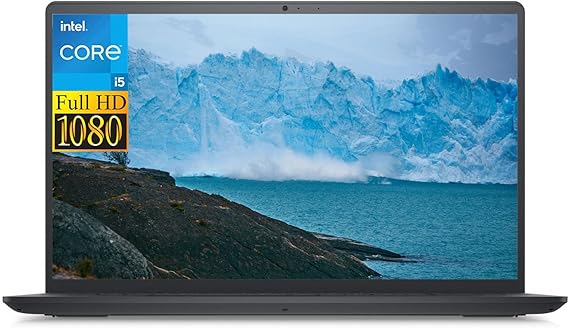In the realm of laptop computing, two heavyweights stand out among the crowd: Dell and ASUS. With their commitment to innovation, reliability, and cutting-edge design, these brands have etched their names as leaders in the industry. As we embark on this journey of comparison, we delve into the intricate features and strengths that distinguish Dell and ASUS laptops. Join us as we uncover which brand reigns supreme in this epic clash of titans.
Key Features Comparison
Product Selection
Asus and Dell both offer a wide range of laptops to cater to different consumer needs. Asus has an extensive product line-up that includes the ZenBook, VivoBook, TUF Gaming, ROG (Republic of Gamers), and ExpertBook series. Each series is designed to cater to a specific target audience. For instance, the ZenBook series is known for its sleek design and powerful performance, making it suitable for professionals, while the ROG series is popular among gamers due to its high-end graphics and cooling capabilities. Asus also offers the latest technologies such as OLED displays, AI noise-canceling technology, and Wi-Fi 6 in their laptops. On the other hand, Dell's product selection is equally diverse, with series like Inspiron, XPS, G Series, and Alienware. The XPS series is highly regarded for its premium build and high-performance features, making it a strong competitor to Asus's ZenBook series. The Alienware series, similar to Asus's ROG, is targeted at gamers and is known for its powerful performance and unique design. Dell also ensures their laptops are equipped with the latest technologies, such as 11th Gen Intel Core processors, NVIDIA GeForce RTX 30 series graphics, and Thunderbolt 4 ports. Both brands have their strengths and weaknesses, and the choice between the two often comes down to personal preference and specific needs.
Affordability
Asus and Dell are two prominent brands in the laptop market. When it comes to price, both brands offer a wide range of options to cater to various customer needs. Asus laptops are generally considered to be cost-effective, offering solid performance and features at a reasonable price. Their latest models like the Asus ZenBook 13 UX333FA and Asus VivoBook S15 are competitively priced and are packed with the latest technologies such as Intel's 10th Gen processors and Nvidia's latest graphics cards. However, some users have reported issues with the durability of Asus laptops, which could lead to additional costs in the long run. On the other hand, Dell laptops are often seen as a more premium option. Their latest models such as the Dell XPS 13 and Dell Alienware m15 R3 are priced higher than most Asus laptops, but they offer top-of-the-line specs, superior build quality, and excellent customer support. Dell's laptops are known for their longevity and reliability, which could justify the higher price point. However, for budget-conscious consumers, Dell's high-end models may be out of reach. In comparison to other brands, both Asus and Dell offer competitive pricing, with Asus leaning more towards budget-friendly options and Dell offering more premium, high-end laptops.
Reputation
Asus and Dell are both renowned brands in the laptop industry, each with its own reputation. Asus is recognized for its innovative designs and high-performance laptops. Their latest models, such as the Asus ROG Zephyrus G14, are lauded for their powerful processors, impressive gaming capabilities, and long battery life. However, some users have reported issues with customer service and warranty claims, which could potentially tarnish Asus's reputation for some consumers. On the other hand, Dell has built a strong reputation for its reliable, sturdy, and serviceable laptops. The Dell XPS series, for instance, is widely praised for its premium design, high-quality display, and robust performance. Dell also offers excellent customer service and warranty packages, which significantly contribute to its reputation. However, Dell laptops are often criticized for their higher price points compared to other brands offering similar specifications. In comparison to Asus, Dell's reputation leans more towards reliability and customer service, while Asus is more recognized for innovation and performance.
Battery Life
Asus laptops are known for their impressive battery life, which is a key consideration for many users. The Asus ExpertBook B9450, for example, boasts a battery life of up to 24 hours, thanks to its 66Wh 4-cell lithium-polymer battery and energy-efficient Intel Core i7 processor. This is an exceptional feature for professionals and students who need to use their laptops for extended periods without access to a power source. However, some users have reported that the battery life tends to decrease significantly over time, which is a common issue among many laptop brands. On the other hand, Dell laptops also offer reliable battery life. The Dell Latitude 9410 2-in-1, for instance, claims to have a battery life of up to 27 hours, powered by a 4 Cell 52Whr ExpressCharge™ Battery. This surpasses many of its competitors, including some Asus models. Dell's battery technology also includes ExpressCharge, which can charge the laptop up to 80% in just an hour. However, like Asus, the actual battery life can vary significantly based on usage, settings, and other factors. It's also worth noting that while Dell laptops generally have good battery life, they are often more expensive than Asus laptops with similar specifications.
Display
In the realm of laptop displays, both Asus and Dell have made significant strides in offering high-quality screens. Asus laptops, such as the Asus ZenBook Pro Duo, come with a 4K UHD NanoEdge touchscreen, offering vibrant colors, sharp images, and a wide viewing angle. The secondary touchscreen, known as the ScreenPad Plus, adds another dimension to multitasking and creative work. However, the glossy finish of the screen can cause reflections in brightly lit environments, which may affect visibility. On the other hand, Dell laptops, particularly the Dell XPS 15, feature a 4K UHD+ (3840 x 2400) InfinityEdge touch display. The anti-reflective screen combined with a high brightness level of 500-nits allows for better screen visibility even in outdoor and well-lit environments. Dell's display also supports 100% Adobe RGB and 94% DCI-P3 color gamut, making it a great choice for professionals working with photo and video editing. However, the high-resolution display can be a significant drain on the battery life. When comparing Asus and Dell, it's clear that while both brands offer high-quality displays, the choice between the two will largely depend on the user's specific needs and work environment.
Conclusion
In the showdown of Dell vs. ASUS laptops, both brands offer compelling options tailored to different preferences and priorities. Dell excels in reliability, performance, and professional-grade features, making it the ideal choice for business users and professionals who demand the utmost in productivity. ASUS, on the other hand, shines in design, innovation, and affordability, appealing to users who value style, versatility, and value for money. Ultimately, the choice between Dell and ASUS laptops depends on individual preferences, whether it's a preference for reliability and performance or design and affordability. Whichever path you choose, both Dell and ASUS continue to push the boundaries of laptop technology, driving innovation and inspiring users worldwide. So, whether you're team Dell or team ASUS, rest assured that the future of laptop computing is in capable hands, thanks to these two industry giants.


















